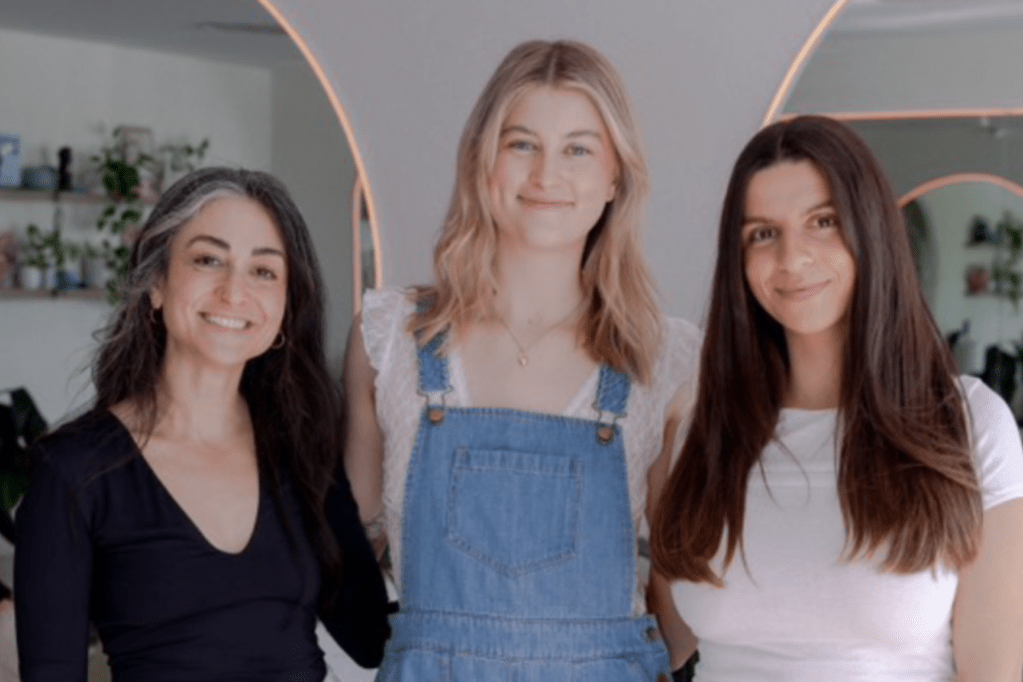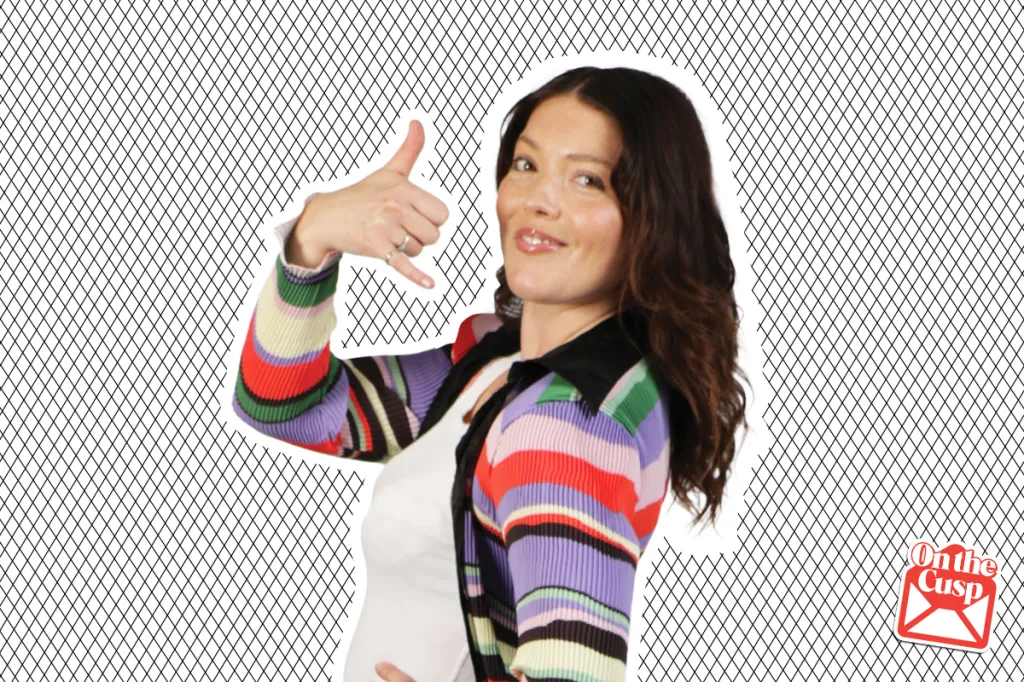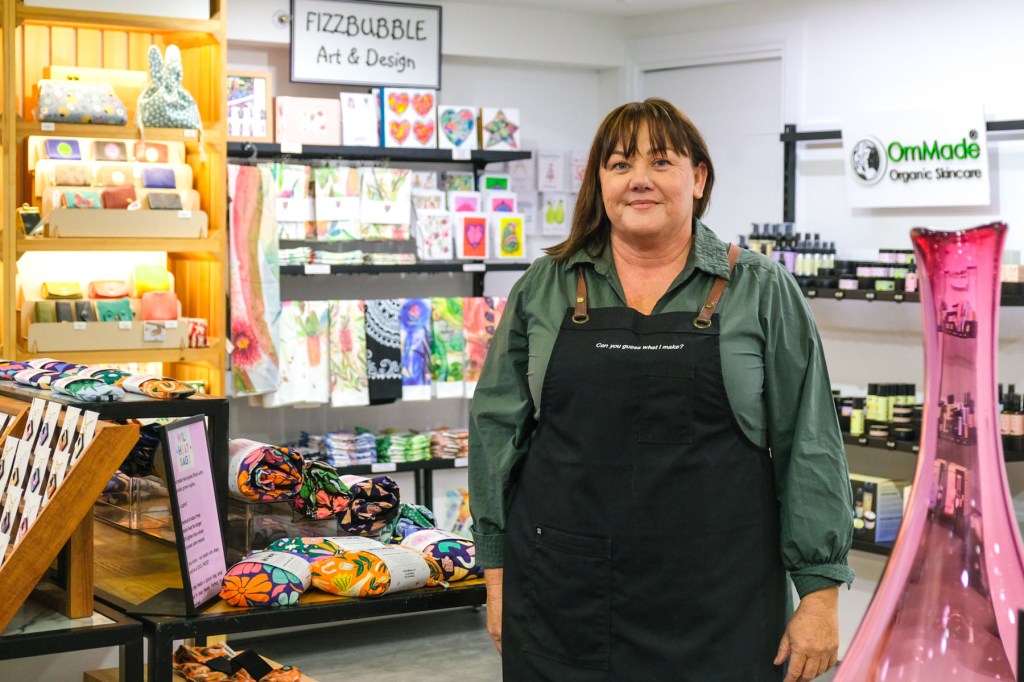Endometriosis support blooms in free workshops

CityMag spoke to a trio hosting free workshops to educate and support people with endometriosis, teaching them about treatment options and how to advocate for themselves.
An estimated one in seven women in South Australia have endometriosis, and it takes seven years on average to be diagnosed. The condition has no cure, and annual costs associated with treatment are around $30,900 per person.
“The World Health Organisation recommends that anyone with a chronic condition should be extensively educated in their condition, and they’re not. No one is in things like endo and chronic pelvic pain. They’re just not.
“By the time they even learn enough about it to realise that they have the capacity to be in control and advocate for themselves, they’ve already been through the healthcare system and just felt pretty demoralised.”
The idea for Bloom came after Allysha Hargreaves, who was diagnosed with endometriosis in 2022, attended a free pelvic pain workshop hosted by Nawal.
“I just thought it was the greatest workshop ever, and I was like, there needs to be more of these in Adelaide,” Ally tells CityMag.
Ally stored the idea away in her mind until she met the last of the three – mental health worker Julia Romeo.
Through public donations Ally raised enough money to cover the cost of workshops, initially intending for the money to compensate Nawal and Julia – something they turned down.
“How could two amazing people just see the same vision as me and want to just get out into this community?” Ally says.
The money raised has allowed for three free workshops to be organised, with the first one hosted in July, and the second coming up on October 13.
You might like

The free workshops are open to all – endometriosis diagnosis or not.
Ally says her role in the workshops is “the hardest to kind of justify”, giving lived experience input into Julia and Nawal’s offerings, and emceeing the event.
“I think Ally doesn’t give herself enough credit,” Nawal interjects.
“I think the lived experience side in these sorts of environments or these sorts of services is actually really important.
“Because these people will come to the event and they’re looking to connect with someone that’s been through something similar, that may have experienced gaslighting or may have experienced healthcare difficulties, and has come out the other side.
“They’re all kind of looking for hope.”
As for Nawal’s role, she shares information about pelvic floor physio and healthcare more broadly.
“It’s almost like giving them advice as to how to navigate the healthcare system, but also what sort of service they’re looking for that might resonate with them, where they might be able to save money.
“But then also looking at some of the simple ways we can manage our pain without having to do hormone therapy or suppression of periods. Understanding how our body responds to things and what pain actually is.”

Nawal previously hosted free workshops for pelvic pain management.
The last of the three, Julia talks about all things wellbeing, and how people can support themselves.
“When they’re exploring a diagnosis, or experiencing symptoms of endometriosis and pelvic pain and alike conditions. Acknowledging how these sorts of experiences can have an impact on one’s wellbeing,” she says.
“Providing an overview of some foundational tips that people can use to support their wellbeing and mental health when they are having these experiences, and touching on how there is no one-size-fits-all approach for wellbeing.
“A lot of young people who are maybe experiencing symptoms might not feel empowered to advocate for themselves, and that comes from a lack of education of what might be in their control, as to what’s not in their control.
“They might not be able to control whether they have endo or not, but there’s so many things in their control.”
Subscribe for updates
Nawal says the workshops are all about “providing the tools to someone to at least get themselves started”.
The workshops, though targeted at anyone with endometriosis or pelvic pain, welcome anyone, including partners and loved ones of people with endometriosis, who want to learn more about how they can provide support.
“We had the intention of making it quite intimate, and making it a space where people felt safe. Where maybe there weren’t too many people there, but still enough that people might be able to feel like there’s a variety of experiences shared,” Julia says.
“As much as we want to be able to let as many people have access to this information, you also want to somewhat keep the event small enough that people feel safe to open up.”

Julia brings her expertise in mental health care to the workshops.
Nawal tells CityMag she recently applied for a grant in hopes of keeping the workshops going, information she had not shared with the other two yet.
“I didn’t want to raise hopes, it might not happen.”
Ally said the three had not spoken about the future to a great extent yet, but they are all keen for Bloom to continue.
“I would love, obviously to be able to deliver as many workshops as we can. But I think the really important thing to note right now is that we are all doing this for free at the moment.
“It would be an incredible thing to do, I think it’s something that’s not currently being done in Adelaide. We have great pelvic pain workshops and things that are going on in schools, but between the ages of the 18 and upwards demographic there’s nothing.”
Though a clear solution may be to charge for the workshops, Ally said this was never a consideration.
“That is just something that’s so important to us, that these continue to be free. Because you think about how much a normal person with endometriosis or pelvic pain is paying per year just on things like different healthcare professionals, and appointments, and hormone therapies, different little things to keep at home to support them.”
“Also loss of work,” Nawal says.
“Social standing, you know. You miss times with your friends, you miss time with family, you have to be sick from work, you can’t go to events. It all snowballs.”

Ally is the lived experience behind Bloom.
Ally first went to a GP at 14 because of her periods. She was immediately put on the contraceptive pill and told due to a family history it was likely she had endometriosis, but nothing could be done about it at her age.
“So I went home and I did my own research, and because of the incredible lack of research and information that there is I just thought, okay, endometriosis correlates to surgery, and that’s how I get a diagnosis, and that’s my next goal.
“For the next six years, that’s all I focussed on, just getting surgery. I was so ignorant of pelvic floor physiotherapists, dieticians, physiotherapists, exercise physiologists, anybody else that could help change my lifestyle and my perception of pain.
“The only thing I wanted was to go under. And I think we have to acknowledge that a lot of people coming to these workshops are in that stage, and that is okay.
“But what we need to start doing, especially with young people, is teaching them that that is not the only option.”

